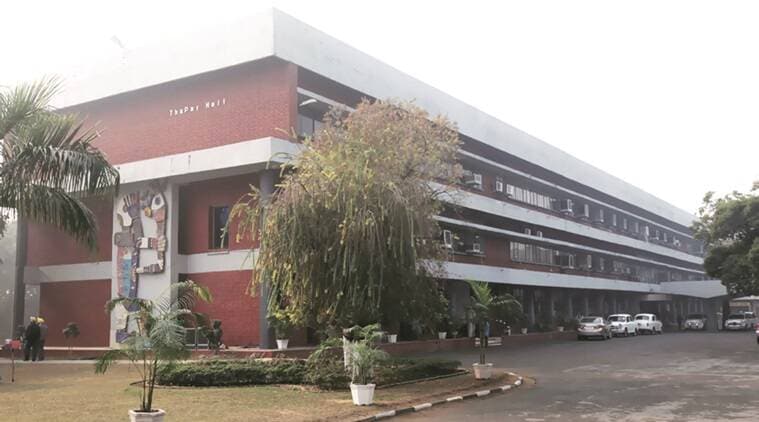 Punjab Agriculture University got the patent national patent for inventing ‘improved water and nutrient perforation and re-circulation system for pot-based substrate hydroponics. (File)
Punjab Agriculture University got the patent national patent for inventing ‘improved water and nutrient perforation and re-circulation system for pot-based substrate hydroponics. (File)The Punjab Agricultural University (PAU) in Ludhiana has become a pioneer after getting the national patent by developing indigenous hybrid hydroponics technology, the first “swadeshi technology in soilless farming in India”, the university said in a statement Tuesday.
“In a communication received from the patent office, Government of India, it is stated that patentee is granted national patent for inventing ‘improved water and nutrient perforation and re-circulation system for pot-based substrate hydroponics’,” said PAU.
The research was conducted by Dr V P Sethi, professor and head, department of mechanical engineering, PAU, in which an innovative pot-based Hybrid Hydroponics Technology (HHT) was designed, developed and tested for better plant growth, more water and nutrient savings and higher yield inside a semi-automatic micro-climatically controlled greenhouse.
The HHT combines the features of two separately existing hydroponics technologies — Substrate Hydroponics Technology (SHT) using soilless porous root media and Shallow Water Pond Hydroponics Technology (SWPHT) — thereby converting it into a more effective single hybrid technology. The developed technology was tested by growing cucumber, tomato and capsicum for two years during which it was established that much faster growth and higher yield was obtained as compared to existing pot-based (bato bucket, Dutch technology) and grow bag-based (non-recirculation type, Israeli technology) soilless technologies.
The developed low cost technology has the potential to revolutionise rooftop-based vertical gardening in urban areas as well as at large scale for commercial purposes. It is pertinent to note that Dr Sethi was also invited by the University of Guelph (UoG), Ontario, Canada in 2017 to deliver a special seminar on this unique HHT soilless technology which was attended and appreciated by the scientists and greenhouse growers in Canada. The UoG had also awarded an appreciation certificate to Dr Sethi for doing his pioneering research.
Dr Sethi has been working in the areas of greenhouse design, thermal modelling and microclimate control, solar thermal engineering and applications, paddy straw management for useful heating technologies and hydroponics technologies since last 25 years and has developed several innovative technologies. Due to his research contributions, Dr Sethi was invited as a Visiting Research Faculty (twice) by North Dakota State University, USA for collaborative research. Considering his impact on research and innovations, his name was included in the top 2% best scientists elite list across the world working in all fields (1996-2020) by Stanford University, USA.